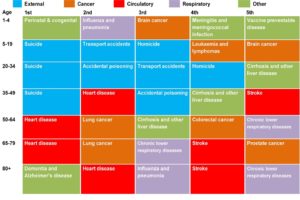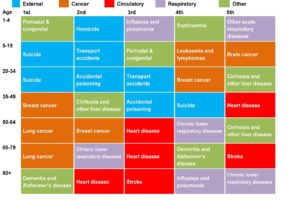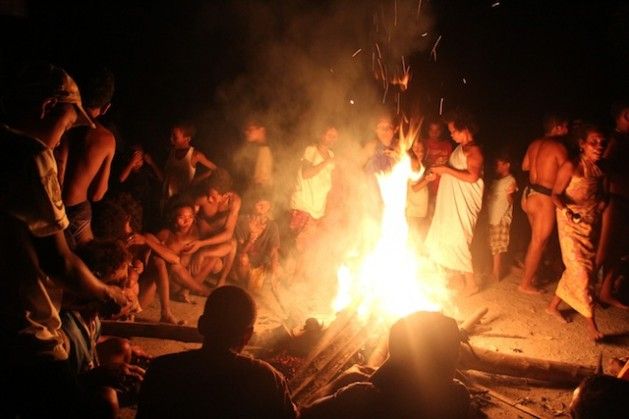Georgia Wingfield-Hayes
I had always heard people talk about Elders, I would talk about them myself, but it wasn’t until I met one that I understood what the word meant.
A tell-tell sign of a true elder is the quality of their advice, which is different to that of most other people. In fact, they don’t really give advice, but rather say things that expose you to yourself. In just a few words, revealing a truth you’ve kept hidden from view, or leading you towards a line of self-inquiry that you’d not considered.
The only other place I have ever received such direct, unfettered guidance is during my walking meditation practice, where I hold a question in my mind while walking out in nature. The answers I get on these occasions are very similar to those of elders, sometimes they are like riddles, or the answer might not be fully understood until a year down the line, or they blindside you with a stinging truth.
Why is this quality of advice and guidance so important to growing up, both individually and for society as a whole?
Most of what we receive from each other when we ask for advice, is either collusion with our story, the ‘yes you are right he’s a bastard, it must all be his fault’ kind of reply; or judgement, the ‘well, I’m not surprised that happened to you if you go around behaving like that, it must all be your fault,’ kind of reply.
The sort of advice an elder gives neither colludes nor judges, but rather fosters our growth, our own ability to see what is beneath the surface. It forces us to move beyond black and white dualism, where everything is either right or wrong, good or bad, to seeing the non-dual complexity of ourselves, of others and everything else in life.
Journey’s of Initiation
Below are 2 graphs showing the leading causes of death by age group in the UK. Graph 1 shows the figures for men and graph 2 those for women. Between the ages of 5 and 49, suicide is the leading cause of death for men. For women, suicide it is the lead cause between 5 and 34. If we look at the 2nd and 3rd causes we find road traffic accidents, accidental poisoning and homicide, as the other main factors causing the early demise of our young people.


Malidoma Somé, an African elder of the Dagara people, in his book Of Water and the Spirit, talks of how the boys from their village have to undergo a journey of initiation. It is understood that a few boys will not survive this experience, the whole community therefore occasionally making the ultimate sacrifice with the loss of the life of a beloved son.
However, the community also understands that without this initiation the village may perish. To the Dagara people, this small risk of death is acceptable, because to them an uninitiated life, is like a living death.
In our western culture, we lose far more of our young to suicide, drug overdose, car accidents, and cirrhosis of the liver, than the loss of young initiates the Dagara people experience.
Could it be that the lack of any rite of passage guided by elders in our culture leads youngsters to create their own forms of initiation, which turn out to be far more dangerous and costly in terms of loss of life? Is our high rate of suicide the result of these attempts to self initiate, failing to bring forth a deeper meaning to life?
It is my belief that this is the case. Having finally taken a year-long journey of initiation myself in my early 40’s, under the guidance of Bill Plotkin a Jungian, depth psychologist from the USA. In that year I was so struck by how this metaphoric death to an old way of being, could easily, if not guided by elders, be misinterpreted as a desire for annihilation.
What is a Rite of Passage, and why is it the missing link?
Rites of Passage are the norm throughout all ancient cultures of the world, but in our modern western civilisation they are seemingly lost to the mists of time, however, some vestiges can be found, even here in Europe.
Angeles Arrien, a 20th-century writer and teacher on indigenous wisdom from the Basque Country in Spain, tells how in their tradition children would experience their first initiation aged 4. On their 4th birthday, every child would spend the night alone partway up a mountain, a place they were familiar with by day. She explains that this was so a child could learn that you can be startled and surprised without being afraid. Aged 16, all young people would spend an entire year alone in the mountains, getting to know themselves in relation to the natural world.
These ancient rituals seem a world away from modern life. Plotkin calls ours the forever 21 culture, where youth and beauty are celebrated above all else, little wonder therefore that elders are like hen’s teeth.
Fundamental to initiation is stepping out and away from culture. We are all highly conditioned by the familial, societal situation that we grow up in, which provides a safe container for our early development. But the human organisms craves something beyond that safety. We see this desire in teenagers, they want to break free, change the world, create something new.
The lucky ones find what they crave through experiencing different cultures, education, spirituality, fulfilling work or having a family of their own. While others resign themselves to doing a job they don’t enjoy and wonder that there isn’t something more to life.
But even people with fulfilled lives commonly hit crisis points. The mid-life crisis is culturally understood as a reaction to getting older, with men buying fast cars and dating younger women. But what if we are misinterpreting all of these rebellious desires? What if all this is a call to become something beyond what we are able to imagine for ourselves from within the bounds of our cultural conditioning.
The poet and visionary David Whyte says, “the life you plan, is too small for you to live.” But how else do we find out what it is we really want from life if we don’t figure it out with our minds?
Initiation: A chance to know who we are beyond the bounds of our skin
Quantum field theory, the forefront of modern particle physics, shows us that the fundamental building blocks of life and the universe, are fields of 4 different forces and 12 different types of matter. However dark matter and dark energy, both of which are known to exist because of the force they exert on the universe, are otherwise still entirely anathema to science.
Despite there being so much we still don’t know, what is clear is that we humans and everything else besides, exist within a sort of cosmic soup as a tiny piece of the great quantum continuum. Everything, therefore, is connected and affected by everything else. Consequently, on a quantum level, there is the most extraordinary amount of information available to us. But this information is far too complex for our conscious mind to understand, but that doesn’t mean that we are not able to perceive these things on an unconscious level.
“Life is a mystery to be lived rather than a problem to be solved.” Angeles Arrien
There are many who believe, including spiritual teachers from all traditions that we can train ourselves to have access to this greater mind if we can learn to still our own minds. A still mind allows the possibility to perceive subtle influxes through all our other bodily senses including the unconscious mind.
Through this connection, we can be afforded a different approach to life. Rather than the merry-go-round of our individual conditioned minds, floating in the sea of a culture hell-bent on occupying our attention to ensure that we continue to consume; we have the chance to find something more meaningful because we become aligned with who we are within the context of the whole. From this place, we can find true belonging, and take our place in the world. The lack of such a way of being is what the Dagara refer to as a living death.
Traditional initiations all across the globe involve time spent alone in the wilderness. In this way we return to what is primal, the darkness of the night; the simplicity of living in the moment with whatever you find around ourselves; encounters with other beings, trees, animals and birds. In the simplicity of nature, the noise of culture and our minds have a chance to subside, making space for something new to arise.
Why is taking a journey of Initiation the greatest act of cultural rebellion?
“I used to think the top environmental problems were biodiversity loss, ecosystem collapse and climate change. I thought that with 30 years of good science we could address those problems. But I was wrong. The top environmental problems are selfishness, greed and apathy… and to deal with those we need a spiritual and cultural transformation, and we scientists don’t know how to do that.”
Gus Seth, environmentalist and lawyer.
Why don’t journey’s of initiation exist anymore in our culture? We tell ourselves that it is because we have out-grown all of that primitive stuff, but do we actually have any idea what we are missing? If these rites of passage are a way for us finding greater meaning in life, then they afford us an alternative to consumer society.
Plotkin believes that it is difficult for society to come up with the solutions to its greatest problems from within that society. That when indigenous cultures have problems, the elders go and fast in the wilderness to seek guidance from beyond the bounds of the everyday self. With the crises we face that Gus Seth expresses above, perhaps now more than ever we need people from our culture to explore these possibilities that lie outside of our understanding.
“To come into a deep knowing of who we are, is the stuff that bringing down systems of oppression is made of. Capitalism couldn’t survive, patriarchy couldn’t survive, white supremacy couldn’t survive if enough of us set about reclaiming the human spirit, which includes reclaiming a sense of humanity for those people that are the current vehicles for such forms of oppression”
Rev. angel Kyodo Williams
There are many ways to come into deeper knowing of ourselves, but there is something uniquely relevant about a rite of passage into wild nature at this time of environmental crisis. A ´getting to know who we are’ in the context of all the other life with whom we share our planet.
Journey’s of Initiation in the Modern Day
In the absence of a cultural tradition of such rites of passage and experienced elders to notice when we are ready for them, we can feel a bit lost as to how to approach this. However there are some classic signs as to when such a journey is called for, such as feeling lost or dissatisfied with life. Then there are excellent authors and global elders, such as those already mentioned, who we can turn to and learn from.
The year-long journey of initiation that I took in 2017 was the most profound experience of my life, A new dimension of being opened up, one that is more rich, fulfilling and connected; as if I got plugged back into the matrix, having been born to a culture that taught me to perceive myself as separate.
One of the most profound but simple teachings I received in that year was that when out in nature to be like a child again, curious about the world, looking upon things through a lens of wonder and awe. Try it for yourself, you might be surprised by how nature reacts differently to you as a result.
“We are talking only to ourselves. We are not talking to the rivers, we are not listening to the wind and stars. We have broken the great conversation. By breaking that conversation we have shattered the universe. All the disasters that are happening now are a consequence of that spiritual autism”
Thomas Berry, The Dream of the Earth
References
Angeles Arrien – Basque Mysticism
https://www.youtube.com/watch?v=trthGeXL5qk
Angeles Arrien – TED Talk
https://www.youtube.com/watch?v=2kDRRBK95no
Bill Plotkin Soul Craft
Bill Plotkin The Journey of Soul Initiation
Malidoma Somé Of Water and the Spirit
Quantum Fields: The Real Building Blocks of the Universe – with David Tong
https://www.youtube.com/watch?v=zNVQfWC_evg
This Is Why Quantum Field Theory Is More Fundamental Than Quantum Mechanics by Ethan Siegel https://www.forbes.com/sites/startswithabang/2019/04/25/this-is-why-quantum-field-theory-is-more-fundamental-than-quantum-mechanics/
Rev. angel Kyodo Williams – The World is our field of practice. ‘On Being’ podcast. https://onbeing.org/programs/the-world-is-our-field-of-practice-apr2018/
